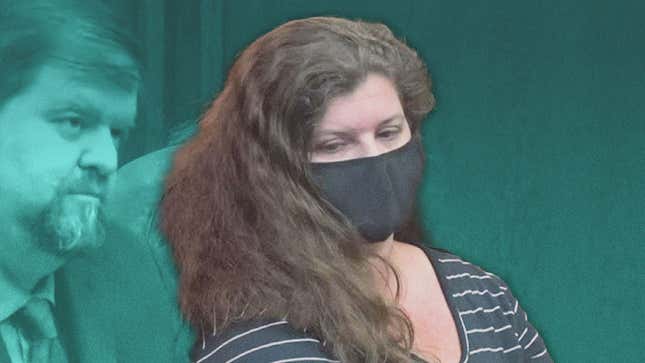Judge Cancels Psych Eval for Mom in Nebraska Abortion Case Due to ‘Lack of Funding’
"It’s fucking fucked up,” a lawyer said of the move days before Jessica Burgess is sentenced for buying her daughter abortion pills and burying fetal remains.
AbortionPolitics

On Friday, a Nebraska mother will be sentenced for buying abortion pills for her daughter and helping bury the fetal remains in 2022, before the fall of Roe v. Wade. But that sentencing will now take place without a court-ordered psychological evaluation. Last week, the judge in the case rescinded his own order, saying he was skipping the evaluation due to a “lack of funding.” News of the cancellation, first reported by local outlet KTIV and confirmed in court documents obtained by Jezebel, has alarmed advocates.
“I can’t imagine a court saying that this is essential evidence, or it would be helpful, and then not following through,” said Rafa Kidvai, director of If/When/How’s Repro Legal Defense Fund. (RLDF is not representing the woman, Jessica Burgess.) “It’s fucking fucked up.”
Kidvai previously spent five years as a criminal public defender in New York City and said defense attorneys use psychological evaluations as “mitigation evidence” to help the defendant either before making any plea deals or prior to sentencing. “The purpose of the psych eval is to infuse humanity into a process,” they told Jezebel, adding that it “is such an essential part of someone’s defense because, if you’re saying that someone’s life circumstances and their psychology plays a role in the happenings of the case, then you want to hear from an expert on that.”
The Madison County District Court clerk told Jezebel that, in general, the party asking for the evaluation has to pay for it. In this case, Judge Mark Johnson requested the evaluation, not the defense, so Madison County was supposed to cover the cost.
News of the charges against both Burgess and her daughter broke shortly after the Supreme Court overturned Roe, but the events in question happened before the ruling. Back in April 2022, someone tipped off police about a stillbirth and buried fetal remains. Prosecutors allege that Burgess bought abortion pills for her daughter Celeste, who was 17 at the time. Celeste gave birth to a stillborn fetus estimated to be 29 weeks’ gestation and they then burned and buried the remains with the help of another person (a 21-year-old man who only got probation). Police obtained a warrant for Facebook messages between the pair; Facebook parent company Meta complied and provided the messages in which they allegedly discussed ending Celeste’s pregnancy with pills.
-

-

-

-

-

-

-

-

-

-

-

-

-

-

-

-

-

-

-

-

-

-

-

-

-

-

-

-

-

-

-

-

-

-

-

-

-

-

-

-








































